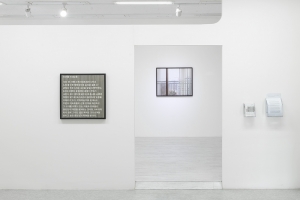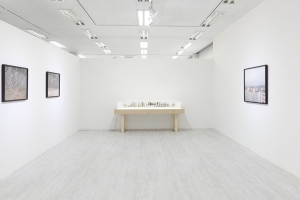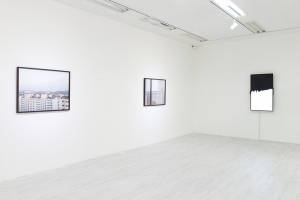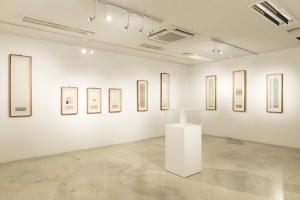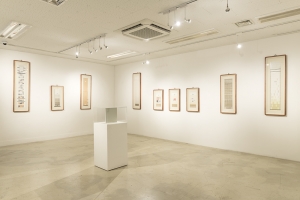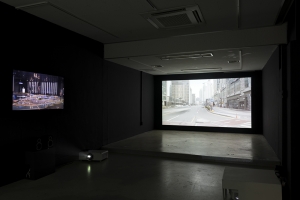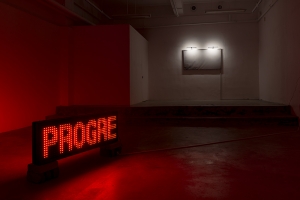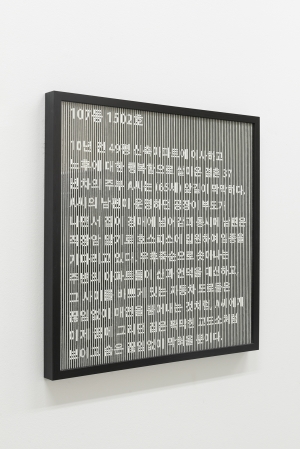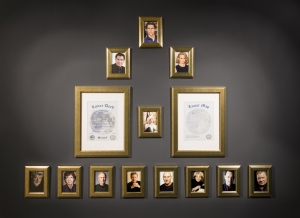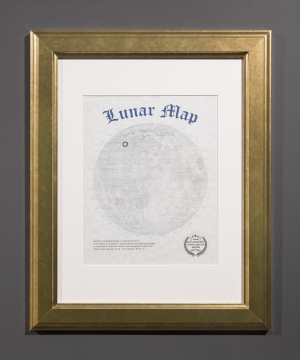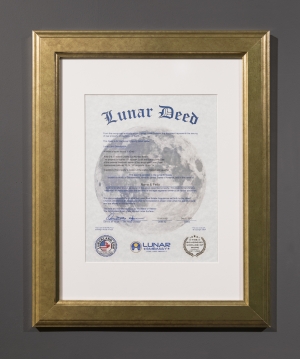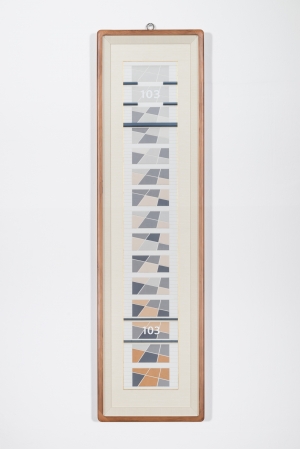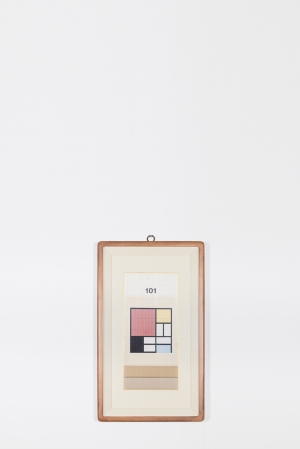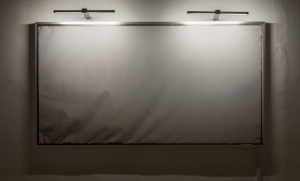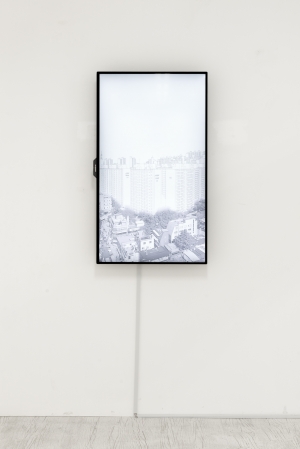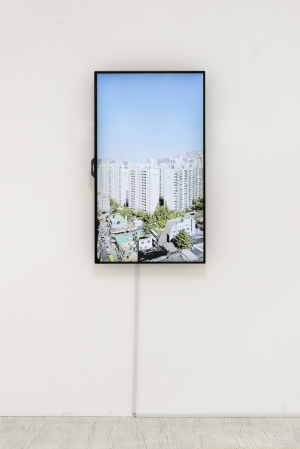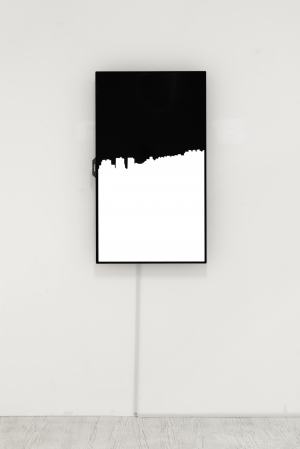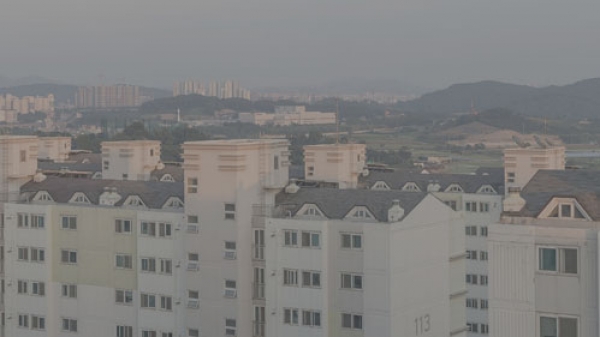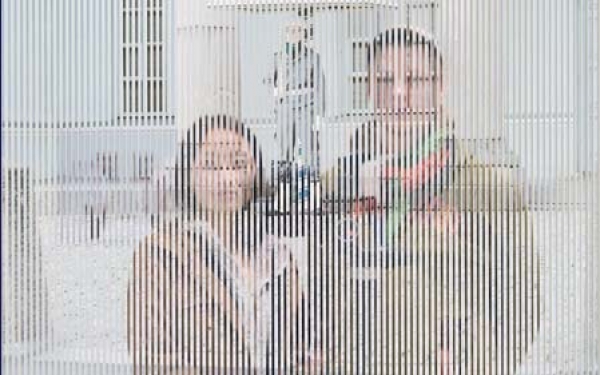전시 EXHIBITION
카드로 만든 집 HOUSE OF CARDS
-
<카드로 만든 집> 전시전경
-
<카드로 만든 집> 전시전경
-
<카드로 만든 집>
-
동아추동(동시대적 아파트주택 안 추상표현주의 동양화)
-
동아추동(동시대적 아파트주택 안 추상표현주의 동양화)
-
신도시 New City
-
발전 progress
-
107동 1502호
-
달나라 부동산 Lunar Estate
-
달나라 부동산 Lunar Estate
-
달나라 부동산 Lunar Estate
-
동아추동(동시대적 아파트주택 안 추상표현주의 동양화)
-
동아추동(동시대적 아파트주택 안 추상표현주의 동양화)
-
스카이뷰 Sky View
-
카드로 만든 집 House of Cards
-
카드로 만든 집 House of Cards
-
카드로 만든 집 House of Cards
HOUSE OF CARDS 카드로 만든집
전 세계의 많은 도시와 나라들이 역사적인 흐름에 따라 보존된 건축들로 이루어져 있는 반면, 한국의 주거에서는 이러한 ”겹겹의 층”을 찾아보기 어렵다. 또한 이러한 다른 나라의 국민 개개인의 정체성과 민족 정체성은 건축물이 보여주는 역사적 기준에 그 토대를 두는 반면, 한국을 응집시키는 힘은 그들의 오천년의 역사가 상징하는 바와 상관없이, 오직 ”발전”을 위한 끊임없는 분투라고 말할 수 있다.
이러한 추측을 이번 프로젝트 ”카드로 만든 집”의 토대로 했을 때, 여기서 궁극적인 질문을 몇 가지 하지 않을 수 없다. 발전이라는 개념 자체가 국책 사업이 될 수 있는가? 그렇다면 그러한 발전하려는 의도는 도대체 어떻게, 누군가에 의해서, 그리고 누구를 위해서 만들어 지는가? 그리고 마지막으로, 개인의 삶은 여기에 어떻게 맞추어지게 되는가?
이러한 국가적 규모의 사업의 본질을 가장 잘 보여줄 수 있는 방법은 한국의 주택산업에서 획일적으로 나타나는 이상한 미적 기준과 독특한 가치 구조를 들춰보는 것이었다. 그래서 위 질문의 해답을 찾기 위해 우리는 건설된 환경에 초점을 맞추었다. 솔직히 한국의 주택풍경이 소수의 대기업들에 의해 만들어 진다는 걸 알아내는 데 엄청나게 깊이 있는 조사가 필요한 건 아니다. 그 대기업들이 이 나라의 경제적 정치적 정책의 많은 부분에 영향을 끼친다는 부분도 마찬가지이다.
중립적이고 비평적인 시선으로 관찰했을 때 드러나는 한국의 주택풍경은 그냥 만들어진 집이라기 보다는 산업에 흡사하다. 또한 이런 건물들, 특히 아파트들은 처음부터 몇 십년이 채 안되는 수명을 가지고 있는 사실을 알면서도 지어진다. 그리고서 이어지는 끊임없는 재건축/재개발은 ”발전”이라는 슬로건에 정말 완벽하게 맞아 떨어진다. 하지만 이러한 산업과 발전이라는 지속적으로 홍보되는 개념 사이의 너무 심하게 조화로운 이 관계는 발전이 거듭되야 한다는 맹목적인 주장에 금을 내기 시작한다. 그것은 ”당신은 소중하니까요” 혹은 ”당신이 사는 곳이 당신을 말해 줍니다”라는 개인주의를 표방하는 카피 문구가, 아이러니하게도 실은 경제적 권력의 소수독점을 위해 만들어진 마케팅으로서의 실체를 들어내는 것이다.
이번 전시의 제목은 <카드로 만든 집>으로서 영어
HOUSE OF CARDS
Whereas many cities and countries are formed out of a historically layered architecture, in Korea such “layerdness” is very scarce. And whereas in most countries both individual and national identity lean heavily on these built historical reference points, in Korea the uniting force seems to be a constant strive for Progress ? a national project initiated in the mid 20th century rather than the country´s 5000 year old history.
Assuming this admittedly speculative hypothesis as our starting point, some basic questions inevitably present themselves. Can progress be a national project? How, by whom, and for whom, is such an agenda designed? How is it endorsed? And ultimately, where does the individual fit in?
In search of answers we turn our attention to the built environment, as we believe that the nature of this national project is best shown within the peculiar aesthetic and unique value structure of Korean housing. Not much investigation is needed to find out that the Korean housing-landscape is controlled by a handful of big corporations ? the same ones that drive the bulk of the country´s economy and politics.
Observed from a distant and critical standpoint, the housing-landscape resembles the result of a mass-producing industry more than built homes. Moreover, the buildings, especially the apartment blocks, are produced without intentions of having a lifespan of more than some decades. This constant renewal would fit perfectly in to a slogan of Progress. However, the all too harmonious relationship between industry and an ever-present promotion of progress cannot go unnoticed. The irony of the “because you´re worth it” or “You are where you live” marketing of individualism for the purpose of an economical oligopoly stares you straight in the eyes.
The title of our exhibition is borrowed from the popular expression “House of Cards,” meaning a structure or argument built on a shaky foundation. In this exhibition we try to map the visual rhetoric used to promote and maintain an intricate structure of this privately run national project. Through documenting, mimicking and rearranging this imagery we hope to shake the foundations of the arguments used in this process. Our approach is at the same time both personal-emotional and critical-analytical. What interests us, ultimately, is how we build our lives within these serially produced promises of individuality.
- 기간
- 2016-06-08 ~ 2016-06-29
- 시간
- 10:00 ~ 18:00 /19일간 (월요일 휴관)
- 장소
- 대전테미예술창작센터 1층 학습관, 지하 전시실 A/B 등
- 참여작가
- NANA & FELIX(김환희, Felix Nybergh/핀란드)
- 작가와의 대화
- '16.6.25(토) 오후 2시
- 오프닝
- '16. 6. 7(화) 오후 6시
- 관련행사






